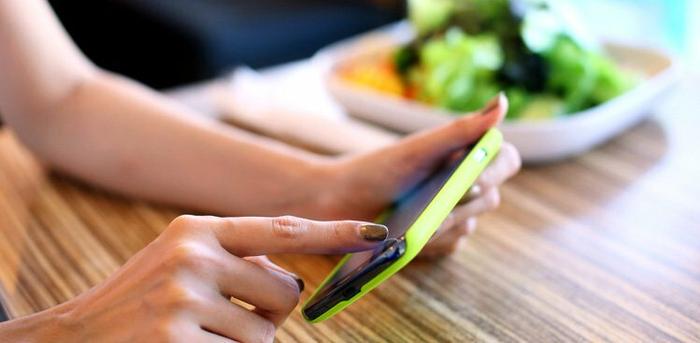
A few weeks ago, I heard my 16-month-old son calling me from his room a few minutes after I put him to bed. When I went to investigate, he was standing in his crib, eagerly pointing to his bedside table where I’d left my iPhone. “Mama! Mama!” he said, looking at the device and then at me, probably wondering how I was surviving without it.
Though I try not to read too far into his verbal outbursts (he does, after all, see the world in terms of what can and can’t fit into his mouth), the fact that he so strongly associated me with my iPhone made me pause.
Though I’m very much aware of limiting screen time for my son, I don’t think much about limiting my own screen time during his waking hours. I’m certainly not spending huge chunks of time on Facebook when we’re at the park, but I’d be lying if I said I didn’t take a quick look at email or send a text to my sister.
A growing body of research warns parents about the dangerous messages we send to our kids when we attend to our screen instead of them. So I decided to give myself a challenge: one week with absolutely no phone or laptop checking when I was with my son. Here’s what I learned.
The Underlying Problem
It’s a fact few parents like to admit aloud: Kids are often boring.
Now, believe me, I love my son. Nothing makes me happier than hearing him laugh or watching him learn a new skill—it’s a joy I can’t express. But hanging out with children for hours at a time can be mind-numbing. For example, opening and shutting a door for 45 minutes straight does not sound fun to me, but it’s one of my son’s favorite pastimes. Parents, especially those of my generation, turn to their phones because we’re used to being constantly stimulated, and children don’t always deliver that type of entertainment.
So, if you want to detach from your phone, it’s helpful to find ways to interact with your child that will keep you both entertained: Make play-dates so you can chat with other adults and help your kids fill up and dump out buckets of sand for two hours. While your child finger-paints, paint a Mother’s Day card for your grandmother. There’s nothing selfish about choosing activities that are fun for you, too. (Pinterest has millions of ideas for activities that won’t put you to sleep or have you reaching for your iPhone. Just search for them after bedtime.)
Your Brain Can Be Re-trained
I thought I would be reaching into my back pocket constantly, but once I established a routine of parking my iPhone on the counter when I walked in the door from work or headed to the kitchen for breakfast, it was easy to relegate all of my online activities to naptime or evening. And while I’ve never felt like I was ignoring my son by glancing at my phone every 15 minutes, I realized that the quality of attention I was providing was very different.
With no periodic interruptions, I felt like I was maximizing our time together and avoiding small irritations for both of us. For example, when my son was struggling to pull apart two Legos, I was able to help him before his frustration spun him into a meltdown. Had I been glancing at my phone, he would have run to me with the blocks, whining, possibly hurling them at whatever was in his path. This is a small change, but parents know that avoiding little episodes like these has a huge impact on the overall tone of the day.
Pictures Aren’t Memories
I know: One of the benefits of our connected world is the ability to document and share the everyday moments of our children’s lives, a huge advantage to parents living far away from extended family. But, as I learned, acting as your child’s paparazzi removes you from the experience. Instead of being fully present, you’re thinking about how other people will experience the moment once you share the picture.
Before my smartphone boycott, I often tried to capture particularly meaningful or adorable moments, like the first time my son ate solid food or the time he knocked an entire box of cereal over and then ate it off the floor. But when I took a closer look at those in-the-moment photos, I realized that they didn’t really do my son justice. The sweetness is in the memory, not the photo.
My experiment helped me understand that attempting to document every heart-melting gesture won’t help me hold onto them, and going a week without daily photos didn’t make me feel like I was erasing history. We should think of photos as placeholders—snapping a few during a day at the zoo or on the first day of school, not shooting rapid-fire at every step your child takes.
Overall, I found that my experiment was a lot less painful than I thought it would be. With the exception of one high-priority email that didn’t get answered until I arrived to work, instead of from my breakfast table, not checking my email or texts when I was with my son didn’t result in catastrophe. I didn’t lose any Twitter followers or miss any breaking news. And, an added bonus, I avoided the tantrum that ensues when my son tries to use my iPhone as a piece of the tower he’s building.
It’s unreasonable (and impractical, probably) to completely disconnect, all day every day, but making a conscious effort to decrease your screen time around your kids will be painless and beneficial for both of you. Give it a try.